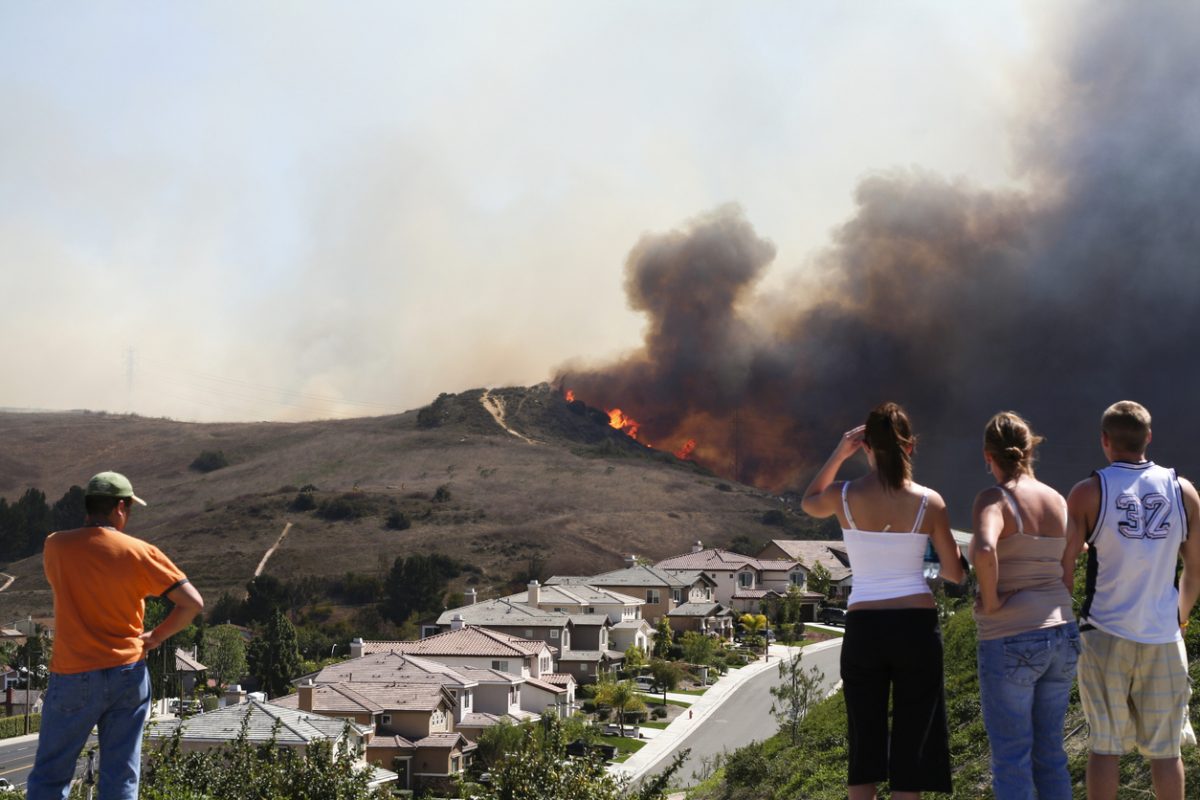
Supporting Patients With Autism During COVID-19
The Centers for Disease Control and Prevention (CDC) monitors autism and developmental disability. The CDC estimates that 1 in 54 children are identified with an autism spectrum disorder (ASD).1 Studies in Asia, Europe, and North America report the average prevalence of ASD in these nations to be 1% to 2%.1 Many with ASD have comorbid psychiatric illness, with anxiety disorders being the most common followed by attention-deficit/hyperactivity disorder.2 ASD is a complex neurodevelopmental disorder that presents with cognitive rigidity, prosocial communication deficits, and marked sensitivity to sensory or environmental change.2
Repercussions of COVID-19
The coronavirus disease 2019 (COVID-19) pandemic has been an anxious and unpredictable time. Many have experienced financial strain with health and social inequalities amplified. Each individual has their own unique coping style, but reactions are likely to be exaggerated in those with ASD. There may be further deterioration in those with existing psychiatric comorbidity, and individuals may manifest their distress in an atypical fashion.
Obsessional thinking and compulsive behaviors regarding contamination are likely to be intensified. A core feature of ASD is repetitive stereotypical behavior, and the frequency of this behavior may increase.3 These reactions are not necessarily pathological and are a common response to stressful situations.
Routines and lifestyles for those with ASD have been affected by the restriction of social networks and face-to-face communication. Many schools are closed.4 Specialist psychiatric services and day center provision, which offer various therapies and input, have also been disrupted. These organizations usually provide security, familiarity, stability, and a structured routine. They support the development of adaptive skills,4 including communication and prosocial behavior. This support enhances psychological development and well-being. As a consequence of service constraints, some with ASD may developmentally regress5 and others may withdraw from society. When services resume to previous capacity, individuals may have difficulty readjusting and acclimatizing.
Restriction in outdoor activity is likely to exacerbate physical and mental health. Most individuals are confined to their homes and their interactions are limited to immediate family members.6 Disrupted routine and enforced lifestyle change can lead to temper tantrums and maladaptive challenging behavior.5 This change may compromise the safety of individuals and elevate caregiver stress and burnout.
Clinical Management
It is important that clinicians and services reach out to patients and their caregivers. Telemedicine is currently the favored route. Physicians reviewing abnormal behavior should explore the overall clinical picture and assess the degree of distress and associated impairment. A risk assessment is required. It is important for clinicians to differentiate between normal and abnormal clinical presentations.
A history regarding developmental age and baseline functioning is also advisable.7 There should be screening for pain, urinary, and gastrointestinal symptoms. A comprehensive physical examination of the relevant systems is needed,7 with consideration of ear, nose, and throat; respiratory; and abdominal examination. Depending on the degree of intellectual impairment, patients with COVID-19 infection may present atypically with food refusal or other nonspecific signs.
It is important to provide information on good sleep hygiene, nutrition, and physical activity for both patients and families. Caregivers need to maintain their own general well-being. Patients with ASD commonly have sleep difficulties such as circadian rhythm sleep disorder or insomnia. Nonpharmacologic interventions should be tried first, but if medication is required, melatonin should be considered. Melatonin is usually well tolerated, and doses can range from 1-10 mg daily.8 Clinical research8 has shown this medication to be potentially beneficial in children with ASD, but larger randomized controlled trials are needed.
Advice to Caregivers and Family
Families already have many strengths including resilience and existing strategies to overcome their challenges. They know their family member better than anyone else and may have already established methods of effective communication. These existing methods and strategies should be positively reinforced by professionals during consultations. Good communication remains essential. It is imperative to show interest and understand the other person’s perspective. Family members need to help individuals relax and self-soothe.
There are many online tools and resources that families can access (Box 1), which may include simple breathing techniques and other relaxation exercises. Techniques are explained using pictorial and other simple communicative styles to suit specific needs. Family members and caregivers should communicate openly and honestly. The communication method should be simple, clear, literal, and adapted to the person’s preferred style.3 Individuals should be reassured regarding the transmission risks of COVID-19 and appropriately educated about infection control.
Creative strategies are encouraged, although it is important to maintain some familiarity and consistency. For those with younger children and adolescents, parents should be advised to collaboratively design a schedule and organize a structured timetable of daily activity. Some children are being home-schooled due to school closures and limited service provision. In this scenario, parents should create some boundary between the space and time dedicated for schooling and other activities, such as visual timetables and digital alarms to signal the end of a session.5 They should clearly separate their role as an educator and parent during schooling times. A structured schedule should allow opportunity for educational, physical, and recreational activity.5 Some negotiation may be required if the young person is not adhering to the timetable. There should be frequent breaks throughout the day and outdoor space should be used for physical activity.
Prior to an outburst, the family may be able to identify early warning signs. They should use strategies to redirect the individual and others around them. When arousal levels are high, the individual should be allocated a private space and interactions kept to a minimum. The safety of the patient and others should be prioritized. Specialist support may be required if the risks escalate. Family members should have a safety plan and be able to contact relevant agencies if needed. Following an incident, the patient should be supported and reassured. Use of such strategies should limit the frequency of outbursts.
After resolution of the COVID-19 pandemic, those with ASD may require support to readjust to their previous routines. We suggest graded exposure to settings with adequate planning, preparation, explanation, and rehearsal.
Box 1. Online Resources for Families of Patients With Autism
- American Psychiatric Association: https://www.psychiatry.org/patients-families/autism/what-is-autism-spectrum-disorder
- Autism Society: https://www.autism-society.org/about-the-autism-society/contact-us/
- Autism Now: https://autismnow.org/about-us/
- National Autistic Society: https://www.autism.org.uk/about/what-is/asd.aspx
- Centers for Disease Control and Prevention: https://www.cdc.gov/ncbddd/autism
- Royal College of Psychiatrists: https://www.rcpsych.ac.uk/mental-health/parents-and-young-people/information-for-parents-and-carers/autism-aspergers-for-parents-carers
Box 1. Online Resources for Families of Patients With Autism
|
|
American Psychiatric Association: https://www.psychiatry.org/patients-families/autism/what-is-autism-spectrum-disorder Autism Society: https://www.autism-society.org/about-the-autism-society/contact-us/ Autism Now: https://autismnow.org/about-us/ National Autistic Society: https://www.autism.org.uk/about/what-is/asd.aspx Centers for Disease Control and Prevention: https://www.cdc.gov/ncbddd/autism Royal College of Psychiatrists: https://www.rcpsych.ac.uk/mental-health/parents-and-young-people/information-for-parents-and-carers/autism-aspergers-for-parents-carers |
|
Received: May 11, 2020
Published online: July 2, 2020.
Potential conflicts of interest: None.
Funding/support: None.
REFERENCES
1.Data & Statistics on Autism Spectrum Disorder. Centers for Disease Control and Prevention website. https://www.cdc.gov/ncbddd/autism/data.html. Accessed June 25, 2020.
2.Collins HC, Siegel MS. Recognizing and Treating Comorbid Psychiatric Disorders in People With Autism. Psychiatric Times website. https://www.psychiatrictimes.com/special-reports/recognizing-and-treating-comorbid-psychiatric-disorders-people-autism. Accessed June 25, 2020.
3.Narzisi A. Handle the autism spectrum condition during coronavirus (COVID-19) stay at home period: ten tips for helping parents and caregivers of young children. Brain Sci. 2020;10(4):207. PubMed CrossRef
4.Lee J. Mental health effects of school closures during COVID-19. [published online ahead of print April 14, 2020] Lancet Child Adolesc Health. PubMed CrossRef
5.Kong M. What COVID-19 means for non-neurotypical children and their families [published online ahead of print April 21, 2020]. Pediatr Res. PubMed CrossRef
6.Liu JJ, Bao Y, Huang X, et al. Mental health considerations for children quarantined because of COVID-19. Lancet Child Adolesc Health. 2020;4(5):347-349. PubMed CrossRef
7.Absoud M, Wake H, Ziriat M, et al. Managing challenging behaviour in children with possible learning disability. BMJ. 2019;365:l1663. PubMed CrossRef
8.Taylor D, Barnes TR, Young AH. Children and Adolescents. In: Taylor D, Barnes TR, Young AH, eds. Maudsley Prescribing Guidelines. 13th ed. West Sussex, UK: John Wiley & Sons; 2018:461-508.
aWaltham Forest Older Adults Mental Health Team, North East London Foundation Trust, Red Oak Lodge, London, England
*Corresponding author: Ahmed Saeed Yahya, MRCPsych, Waltham Forest Older Adults Mental Health Team, North East London Foundation Trust, Red Oak Lodge, London, England E11 4HU, UK ([email protected]).
Prim Care Companion CNS Disord 2020;22(4):20com02668
To cite: Yahya AS, Khawaja S. Supporting patients with autism during COVID-19. Prim Care Companion CNS Disord. 2020;22(4):20com02668.
To share: https://doi.org/10.4088/PCC.20com02668
© Copyright 2020 Physicians Postgraduate Press, Inc.
Enjoy this premium PDF as part of your membership benefits!




